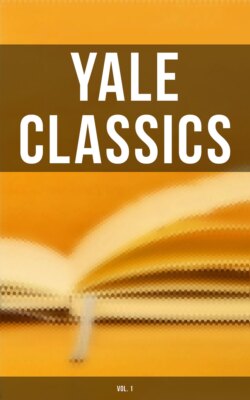Читать книгу Yale Classics (Vol. 1) - Anacreon - Страница 175
На сайте Литреса книга снята с продажи.
The Life and Work of Bacchylides
ОглавлениеTable of Contents
Simônides's nephew, BACCHYLIDES, lived also at Hiero's court, and wrote under the influences both of his uncle and of Pindar. He was imitated by Horace, and admired for his moral tone by the Emperor Julian -- a large share of 'immortality' for one who is generally reckoned a second-class poet. And it appears that more is in store for him. The British Museum has recently acquired a papyrus of the first century B.C., containing several epinikian odes of Bacchylides intact, as well as some fresh fragments. It would be an ungracious reception to a new-comer so illustrious in himself, to wish that he had been some one else-Alcæus, for instance, or Sappho or Simônides. But we may perhaps hope that the odes will not all be about the Games, as Pindar's are. The headings of three of them, 'Theseus,' 'Io,' and 'Idas,' seem to suggest a more varied prospect; but similar titles are sometimes found in MSS. of Pindar, and merely serve to indicate the myths which the particular 'Epinîkoi', contain. The longest of the new odes is in honour of Hiero, and celebrates the same victory as Pindar's first Olympian -- a poem, by the way, which has been thought to contain an unkind reflection upon Bacchylides. The style is said to be much simpler than Pindar's, though it shows the ordinary lyric fondness for strange compound words, such as μεγιστοFáνασσα. The most interesting of the fragments heretofore published is in praise of Peace.
